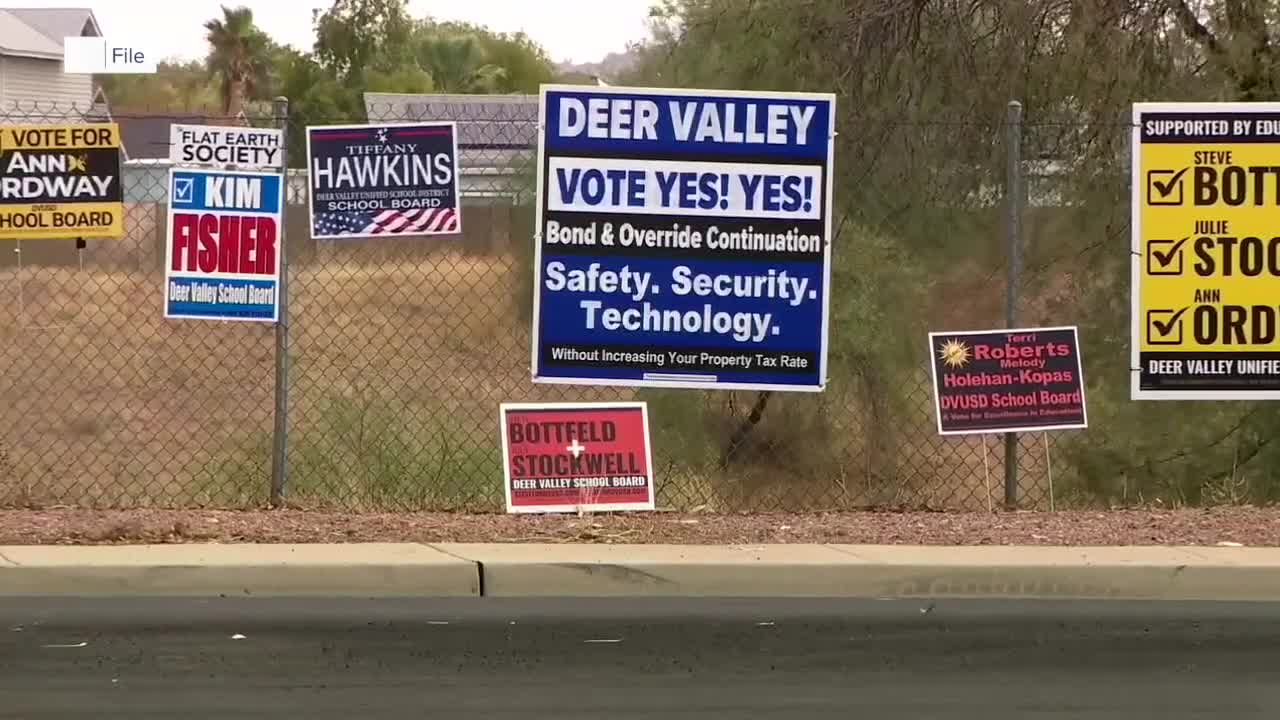Two Valley districts are starting the new school year by cutting dozens of staff positions, increasing student participation fees, and more, as a result of millions of dollars less in funding compared to years past.
The Deer Valley Unified School District (DVUSD) and the Higley Unified School District (HUSD) both had their maintenance and operations override measures fail in the last November election. A maintenance and operations override, also known as M&O override, gives school districts 15% of funding on top of their budget capacity, if approved by voters.
Overrides typically pay for staff salaries as well as programs offered in schools, ranging from dual immersion classes to art, P.E. and more.
With the measure failing in Deer Valley, the district has to phase out $11 million each year for the next three school years, totaling $33 million, if the override continues to fail.
This year, Dr. Curtis Finch, the superintendent of DVUSD, said they had to cut a total of $20 million, with $11 million attributed to the override and $9 million in loss in funding from lower enrollment.
“We've had this override since the 1990s, over 30 years, and so this is the first time we've ever lost it and now twice in a row,” Finch said. “The anti-public school movement is growing here in the state of Arizona, which is a crime against humanity. And it's unfortunate that we're caught in that web.”
In previous reports, ABC15 has talked with taxpayers who voted against override and bond measures for schools. Some told ABC15 that their children do not attend public schools and go to charter schools instead, saying that they shouldn’t need to pay for those students. Some also say they don’t want to increase their taxes. Others feel as if public schools need to be better at managing their finances.
Want a look Inside The Numbers? Garrett Archer breaks down a recent study highlighting Arizona's low education ranking across the nation and what these statistics means in the player below.
With Higley Unified, the district had to phase out $5.1 million this school year due to the override failing and would have to continue phasing out that same amount for the next three years if it continues to fail. Higley Unified Superintendent David Loutzenheiser said they had to cut around $9 million this school year, which included a loss in funding from a decrease in enrollment.
In Deer Valley, Finch said they had to cut 51 staff positions, whereas with Higley, Loutzenheiser said they had to cut around 80 staff positions. Though they cut those positions, it didn’t necessarily mean they had to lay off staff.
“We had a very concerted effort that anyone who had a position wanted to continue for the most part. We were able to do,” Loutzenheiser said, adding that they kept most people due to attrition.
To also help offset the loss in funding, both districts increased prices for extracurriculars like sports or music. In Deer Valley, Finch said some of the costs for families have now doubled.
Both district superintendents say class sizes will go up due to fewer positions.
“That's the number one impact, would be higher class sizes. Number two would be the all the supports as well,” Finch said. “ When you're cutting people, that's less supports for the students and maybe a pull-out for math or intervention for language arts, etc. Those kinds of things, what we call student support, counselors."
In Higley, some educators are having to teach two different grade levels.
“When you look at a three-year process, where you eliminate $15 million out of a budget that’s just over $100 million anyways, that’s a huge percentage of that we’re going to have to do,” Loutzenheiser said.
Both districts will be going for overrides again this fall. If they do not pass, they will have to continue cutting from their budget, meaning possibly eliminating more positions and/or programs, which would ultimately trickle into the classroom.
“That’s what it’s about, it’s about the kids. When we don’t have this funding, it’s, what are we taking away from our students that’s really going to hurt,” Loutzenheiser said.
While the districts wait to see what happens in November, they say they’re planning for all scenarios.





